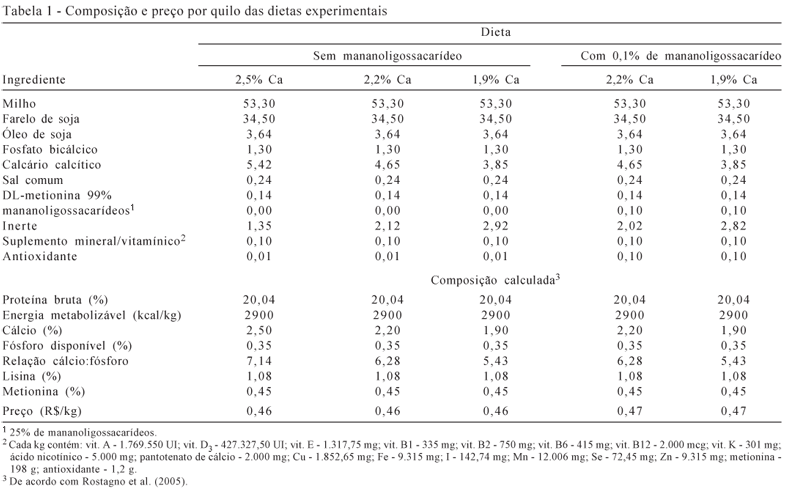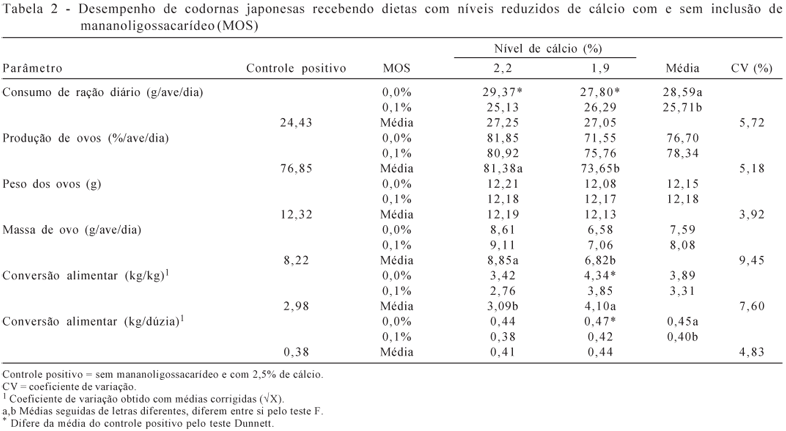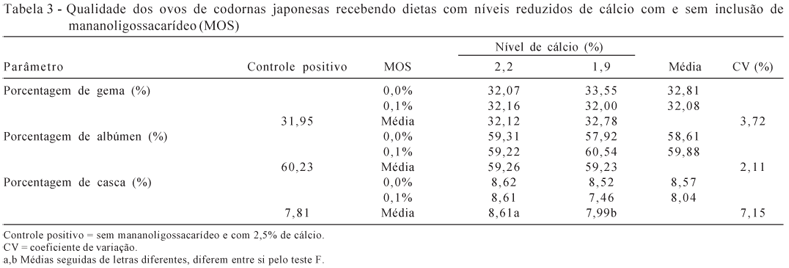The effects of calcium levels and diet supplementation with mannan oligosaccharides (MOS) on the performance and economic viability of laying quails were evaluated. Two hundred quails were used in a randomized complete design and 2 × 2 + 1 factorial arrangement. The treatments were two calcium levels (2.2 and 1.9%), two MOS levels (0 and 0.1%) and a control diet (with 2.5% calcium and no MOS) with four replications. There was no effect of calcium or mannan oligosaccharide levels on egg weight, yolk and albumen percentage and the diet intake/price per dozen ratio. The control × factorial interaction was significant for daily ration intake (DRC), feed conversion and gross marginal (GM). Quails fed calcium deficient diets and without MOS, consumed more ration and had worst feed conversion than birds fed the control diet, which resulted in lower gross margin. The reduction in calcium levels decreased egg production and mass, increased the feed conversion (kg/kg) and reduced the eggshell percentage. Mannan oligosaccharides inclusion reduced the daily feed intake, improved the feed conversion (kg/dz) and increased the gross margin as a result of the lower daily feed intake and lower feed conversion value. Diets with 2.2% calcium and supplemented with 0.1% MOS can be used for Japanese quails.
bird nutrition; egg production; prebiotic

 Diets with mannan oligosaccharides and reduced calcium levels for Japanese quails
Diets with mannan oligosaccharides and reduced calcium levels for Japanese quails


